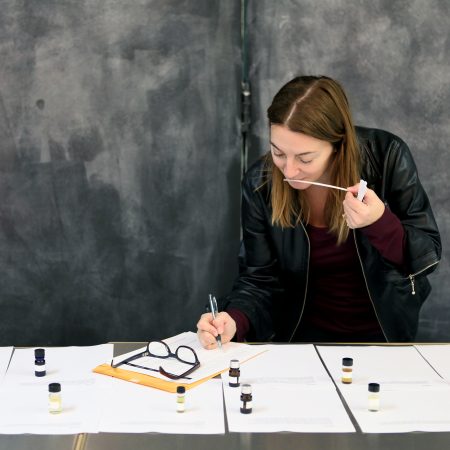
Sherri working on a fragrance formula
It sounds way sexier and more natural to say, “I am attracted to his/her scent” vs. “I am attracted to his/her fragrance,” doesn’t it? We don’t often think about the subtle differences in the meaning of the words when speaking about scent, aroma, fragrance, etc., and even according to the dictionary definitions, there is not much of a difference. But from an industry standpoint, they are not the same. After all, it’s called the “fragrance industry” for a reason. Honestly, I have to admit that when I worked in the fragrance industry, I didn’t give it much thought, even though I was deeply and specifically immersed in the creation of fragrances, not aromas or scents. Although they have similarities, there are subtle differences in the industry between the meanings of these words that make them not-quite-interchangeable.

Fragrance samples lined up for analysis
What is Fragrance?
When we speak about fragrance, we’re specifically referring to the composition (formula) that we mix or “compound” in labs using neat ingredients. These ingredients can be a combination of aroma chemicals (natural or synthetic), essential oils distilled from botanicals, crystals, resins, gums, and other fractions of natural materials derived from various manufacturing processes. The combination of these neat ingredients is called a fragrance oil. The fragrance oil is then mixed with a product base like lotion, wax (for a candle), shampoo, etc. to produce a finished product. If the oils are mixed with alcohol the result is a perfume, cologne, eau de toilette, or parfum extrait depending on the concentration of fragrance oil.
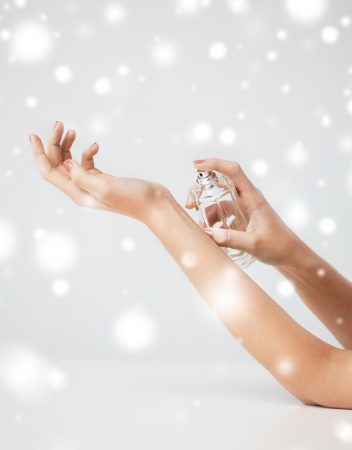
Although there’s no hard rule on the percentage of fragrance for each application the following is a rough guideline:
shampoo and conditioner—0.5 to 2%
candles—5 to 10%
body lotion—0.5 to 2%
eau de parfum—18 to 22%
cologne—12 to 15%
eau de toilette—4 to 6%
parfum extrait—25% and higher
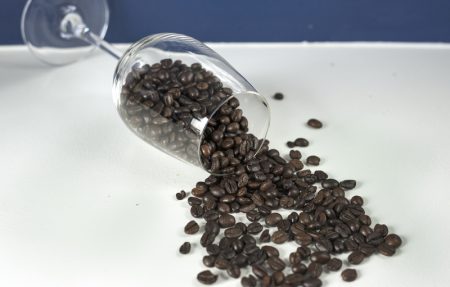
‘Pyrazines’ are the naturally occurring chemicals responsible for coffee’s aroma.
Scent and aroma are much more subjective in the world of perfumery; these words represent an individual’s interpretation rather than a chemical or aromatic composition. For instance, you might smell a jasmine flower and think it has the “scent” of, perhaps, a muguet (lily of the valley). Upon chemical analysis, the composition would reveal the true compositional nature of the flower in question.
If you think about it, you’ll notice that upon smelling a new perfume or unknown fragrance most people’s natural reaction will be to ask the question, “What is this?” or “What’s in this scent?” You’d think this seemingly simple question would be easy for me or any other perfumer with decades of experience as a professional “nose” to answer.
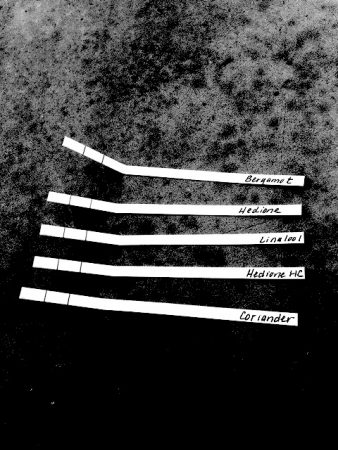
“Scent” blotters used for testing Fragrance
Instead, I still have to pause when asked this question because I’m not sure if the question is “what are the ingredients or notes in this” or “what is this scent?” Although I could list ingredients, it probably wouldn’t help much since many of them have long chemical names that most people aren’t familiar with. And since how someone perceives scent is subjective, it would be impossible for me to describe what they are perceiving. This leaves me with the dreaded and misleading “fragrance descriptions” you find in marketing materials, packaging, and advertisements used to describe a scent. I’ve always had a problem with those, since they are misleading and give people a false sense of knowledge about fragrance. The truth is, industry perfumers rarely use the term “scent” when speaking about a scent. Like a detective putting together clues to solve a mystery, we’re focused on the structures and notes that make up a formula.

My own belief about all of this is that we don’t always need to figure everything out. Fragrances are designed to elicit emotions and feelings, and lend a perspective to an experience. And sometimes it’s those little mysteries that remain and keep us wondering that add to the enjoyment of life.
–Sherri Sebastian, Contributing Editor, founder and perfumer for Provision Scents
Sherri Sebastian is an independent professional perfumer working in Los Angeles. She holds a seat on the board of directors for the American Society of Perfumers
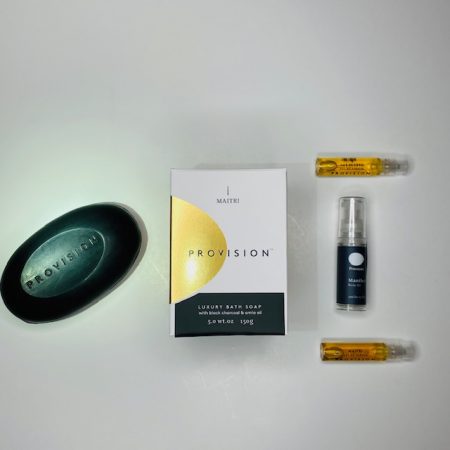
Thanks to Provision Scents and perfumer Sherri Sebastian there is a draw for a USA registered CaFleureBon reader (if you are not sure if you are registered click here (you must register on our site or your entry will be invalid) for the ‘Anniversary Gift Set’, which Sherri curated to celebrate love (and her recent wedding anniversary). It includes: a sample of Las Flores eau de Parfum, Maitri eau de parfum, and Manifest body oil, plus a full size of the new Maitri black charcoal and amla bath soap
And
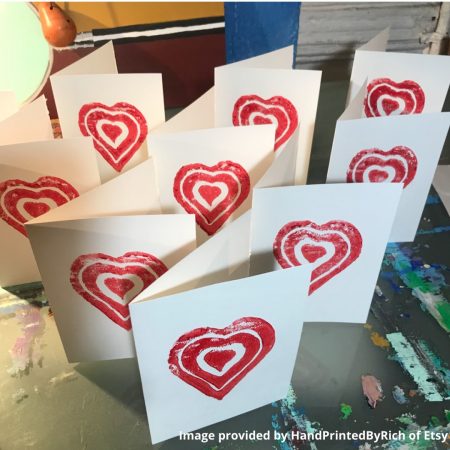
a handprinted heart card from NY Artist Rich Rickaby. To be eligible please leave a comment with what you enjoyed or learned from Sherri’s article on Scent and Fragrance. Do you think the words are interchangeable? Draw closes 2/3/21
all photos Sherri Sebastian©
Please like The Series on Facebook here and your comment will count twice
You can follow us @cafleurebon @provisionscents @sherri_sebastian on Instagram.
This is our Privacy and Draw Rules Policy
We announce the winners only on site and on our Facebook page, so Like ÇaFleureBon and use our blog feed … or your dream prize will be just spilled perfume
